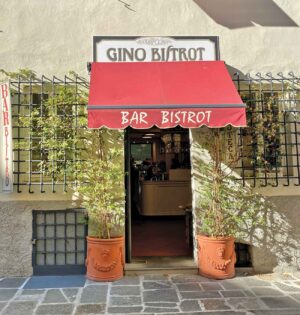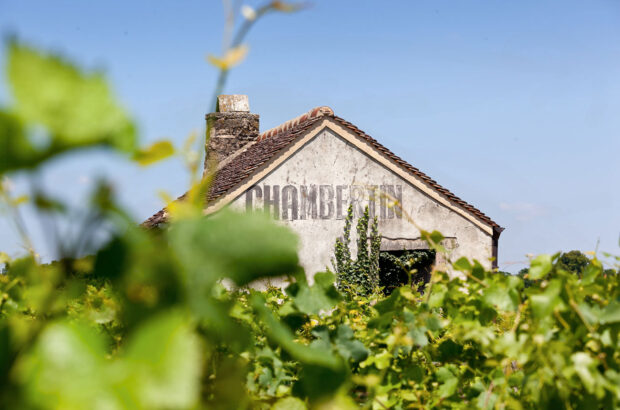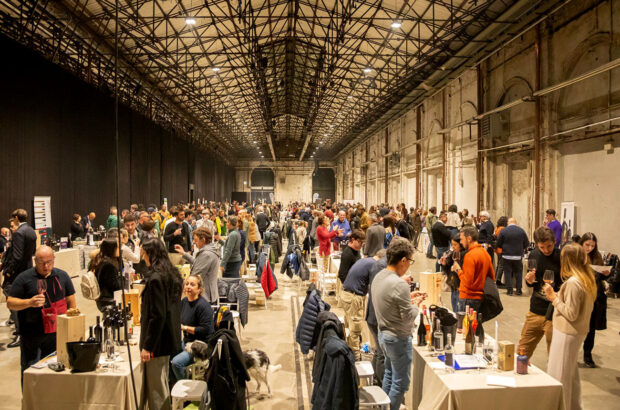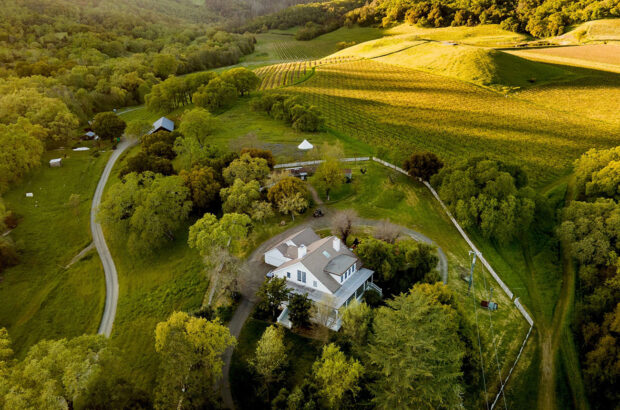The dynamism of Lucca’s wineries has exerted an important influence on the region’s gastronomic scene, such that today, Lucca and its renowned ‘sea extension’ – the Versilia sandy-beach coastal stretch of Viareggio up to Forte dei Marmi – are at the forefront of the Italian culinary panorama. There are 10 Michelin-star restaurants in the area, eight of which are located along a short 12km stretch of coast – a brilliant alignment! – while the other two are Butterfly, on the plain of Lucca, and Giglio, within Lucca’s imposing 4km-long Renaissance city walls.
Nestled in a fertile plain of northern Tuscany, Lucca appears to the traveller like a mirage. An ancient settlement of Etruscan origins, the city gained importance as a Roman colony due to its strategic position in the north of the Italian peninsula. The city stands on the ‘olive border’, which in the past marked the northern edge of Mediterranean civilisation. For the Romans, defending Luca (as it was known in the Roman era) meant defending the empire.
In the Middle Ages, Lucca became a republic and grew prosperous thanks to the production of, and trade in, silk. The historic centre was enriched with palaces and churches. Among the latter, San Martino cathedral and San Frediano basilica are worth a visit.
Following the silk thread, local wine and oil reached the most important European markets. In the 16th century, when the silk trade went into crisis, the noble families of Lucca invested their enormous wealth in the countryside, giving rise to the model of the villa-farm.
Prime location
From the city’s bastions, which today host alleys and gardens, one’s gaze is directed towards the Lucca hills, which are well suited to viticulture. The most prestigious area is Valgiano, located northeast of the city. In the early 2000s, Tenuta di Valgiano turned the spotlight on this corner of Tuscany by focusing on organic farming and minimal-intervention winemaking, and involving other local wineries in LuccaBiodinamica – an initiative set up in 2016 to promote biodynamic methods that now includes 16 members. The winery’s decision to combine native vines, mainly Sangiovese, with international ones – Merlot and Syrah, introduced by the French troops who brought an end to the Republic of Lucca in 1799 – proved to be a winning one: the Tenuta di Valgiano Colline Lucchesi Rosso, a vortex of power and elegance in which these grape varieties are blended, is the manifesto of the small Colline Lucchesi DOC just to the northeast of Pisa.
A tour of the local wineries includes Malgiacca, Macea and Podere Còncori, the latter perched amid the rugged terrain of the Garfagnana region, about 35km north of Lucca city. In the wider Lucca municipal area, Fabbrica di San Martino, Fattoria Sardi and the farm cooperatives Calafata and Pieve Santo Stefano are also worth a visit.
The symbolic dishes of Lucca are garmugia (a spring soup based on vegetables with the addition of bacon), tordelli al ragù (fresh pasta filled with pork and beef, soaked bread, cheese and eggs) and rovellina (breaded and fried slices of beef cooked in a tomato and caper sauce). Among the seafood ingredients, anchovies and cod stand out. Don’t miss tasting the buccellato, a typical sweet bread with anise and raisins.
What time of year should you discover Lucca? Any season is good, but summer, due to the attraction of the nearby beaches and the many events, including the Lucca Summer Festival and the Puccini Festival, is probably the best time.
My top 10 in Lucca
1. Al Tambellini dal 1870
Via di Sant’Alessio, 1403

Al Tambellini dal 1870 is a testament to Lucca’s culinary tradition. Credit: Toscana Secrets
This restaurant, located in a former post station and horse stable on the outskirts of Lucca, boasts a century and a half of history. Managed by the Tambellini family, it offers the entire recipe book of Lucca tradition, including tordelli, rovellina and potato bread. The cellar includes the best labels from the nearby Colline Lucchesi DOC area. It has a family atmosphere and in the summer you can eat under the porch of the magnificent farmhouse.
2. Enoteca Vanni
Piazza del Salvatore, 7

Enoteca Vanni is home to an extensive wine offering. Credit: Enoteca Vanni
Every wine lover should make a pilgrimage to this wine shop, which is located in a 13th-century palace. The maze of underground cellars houses more than 50,000 bottles from around the world, including many older vintages. Its special focus on natural wines is continually growing. It is possible to buy a bottle and sip it in the adjacent Dispensa bistro, which offers light lunches and delicious evening aperitifs.
3. Enoteca Vino e Convivio
Via di Coselli 4/6 – Guamo

Enoteca Vino e Convivio, a top spot in Lucca for a quick lunch
Don’t be fooled by the surrounding panorama, an artisan area on the outskirts of Lucca dotted with small factories and car dealerships. As soon as you enter this wine shop you will be enveloped in a relaxing atmosphere, while your gaze will be lost among the shelves of bottles reaching up to the ceiling. The selection of labels does not set geographical boundaries, but focuses on natural wines. From the kitchen come dishes and snacks ideal for a quick lunch or an aperitif.
4. Fattoria Sardi
Via della Maulina, 747

Chef Damiano Donati serves up seasonal small plates at the restaurant of Fattoria Sardi. Credit: Francesco Pierini
This renowned biodynamic winery on the first hills of Lucca recently opened the Ristoro Agricolo restaurant. Chef Damiano Donati, a local celebrity, has opted for a tasting menu formula, which is continuously updated with seasonal products, to reduce food waste. In the winter you dine in the maturation cellar, in summer in the farmyard near the vineyards. It is also possible to enjoy an aperitif accompanied by small tastings.
5. Giglio
Piazza del Giglio, 2

Truffle pasta at Giglio
In one of the most enchanting squares in Lucca, within an elegant 18th-century building in front of the municipal theatre, Michelin one-star Giglio is an unmissable stop. Three very talented young chefs – Benedetto Rullo, Lorenzo Stefanini and Stefano Terigi – intelligently revisit the great dishes of traditional Tuscan cuisine, from both land and sea, under the direction of patron Paola Barbieri. A tasting menu for vegetarians is offered, while the wine list includes about 700 labels from all over the world.
6. Gigliola
Corso Garibaldi, 17

Dont miss the ‘mindblowing’ homemade breads at Gigliola
Born from an idea of the young chefs of the Giglio restaurant, this gastro-bakery with table service is today a point of reference for locals and tourists alike. In its informal environment you can enjoy biodynamic wines and vermouth by the glass, accompanied by croutons and stuffed focaccias, but also ethnic street food such as pitta with hummus and lamb tacos. The homemade bread is mindblowing. It’s also possible to enjoy some cooked dishes.
7. Gino Frutta & Bistrot
Piazza Santa Maria, 18

The rear entrance to Gino Frutta & Bistrot
Gino Pieri, the son of a fruit and vegetable wholesaler, opened a store in the historic centre of Lucca in 2006. In a short time, the shop became a delicatessen, then a bistro was added in 2017. Today, Gino starts the day by serving breakfast and selling fruit, and ends it with aperitifs. You’ll find stuffed flatbreads and takeaway delicatessen dishes, but also an à la carte menu for lunch at the bistro. The wine list is rich in sparkling and natural wines.
8. Mecenate
Via del Fosso, 94

Mecenate works closely with Lucca’s artisan food suppliers. Credit: Gianni
In the renovated spaces of an old laundry (surviving in the retained original sign) within the city walls, Stefano De Ranieri and Maria Soledad Cardenas will welcome you with their ‘ultra-traditional’ dishes, with raw materials, cheeses and cured meats all sourced from local artisans. The establishment’s garmugia, tordelli, tripe and stewed chicken will leave you breathless. In the summer, the veranda overlooking Piazza San Francesco adds magic to the experience. The wine list features more than 300 labels, some very rare.
9. Osteria di Lammari
Via Lombarda, 143 – Capannori

Osteria di Lammari – the perfect meeting point
In the industrious plain of Lucca, this tavern now managed by Cristina Taddeucci and Dino Lera continues to be a meeting point, having first been a refreshment stop for travellers, then a dance hall and even… a petrol station! In the welcoming dining room or at the bar counter enjoy tasty seasonal soups, cod and potato ravioli, or tordelli with meat sauce. The stewed tripe is textbook. There is a summer garden and a wide choice of biodynamic wines.
10. Santa Goccia
Via degli Angeli, 17
Brand new wine shop and bar, a stone’s throw from the San Frediano basilica, run by three young partners. The wine list is abundant and full of curiosities, with a special focus on the biodynamic production of the Lucchesia plains, as well as wines from elsewhere in Italy and abroad. There’s a great choice of spirits, too. To be combined with salumi and cheese platters.







